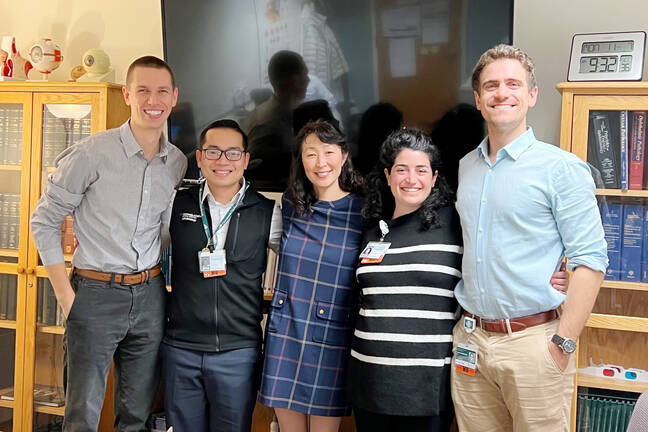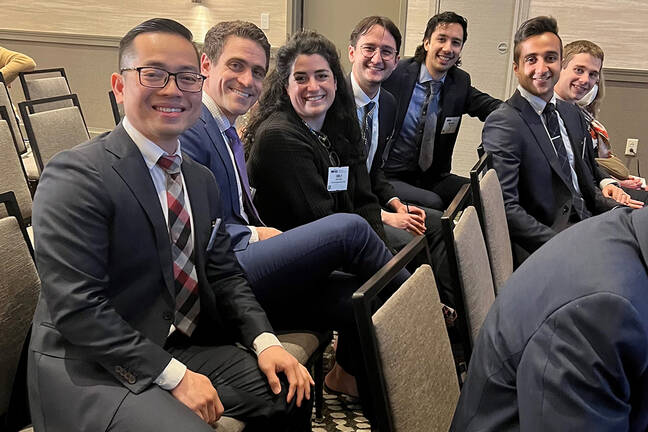The Ophthalmology Residency program provides residents with comprehensive training and education in the medical and surgical care of the eye and visual system. We received initial accreditation from the Accreditation Council for Graduate Medical Education (ACGME) in April of 2019. We welcomed our first cohort of residents in 2021.
Our mission is to guide and educate ophthalmology resident physicians as they develop the skills and expertise to provide safe, high-value ophthalmic care through professional, ethical, and compassionate behavior. We empower physicians to continuously improve their education, practice, and the community health care system as a whole. We aim to produce ethical, highly competent practicing ophthalmologists, each with a well-developed sense of professional responsibility and early habits of a scholarly approach to medical practice.
Our residency is structured to expose each resident to every aspect of ophthalmology and prepare them for a subspecialty fellowship or general ophthalmology practice. Every level of complexity, age group, and subspecialty practice is abundantly available. Our research opportunities are diverse with excellent mentorship available in clinical studies, quality improvement, and basic science investigation of the visual system. Residents will leave this program equipped to practice all aspects of general ophthalmology. In addition, residents will have sufficient exposure to the more highly specialized aspects of ophthalmology to be able to make an informed decision regarding possible fellowship training.
Throughout the training program, we place emphasis on providing residents with a high volume of supervised operating and decision-making experiences. This approach ensures optimal development of skills, allowing the resident to assume substantial clinical independence in the final year.
About the program
Our residents participate in training at Dartmouth Hitchcock Medical Center in Lebanon, New Hampshire; the Veterans Affairs Medical Center in White River Junction, Vermont; and Massachusetts Eye and Ear Infirmary in Boston and Waltham, Massachusetts. Ours is a small program within a busy academic medical center that hosts residents and fellows in over 50 other specialties; incoming trainees will be joining a large community of peers training throughout the medical center. There is well-established institutional infrastructure for resident support.
The Dartmouth Hitchcock Medical Center faculty consists of 12 fellowship-trained ophthalmologists, an optometrist, and 2 orthoptists. All major clinical subspecialties are represented including vitreoretinal, glaucoma, cornea, uveitis, oculoplastics, pediatric ophthalmology and strabismus, and neuro-ophthalmology. There is no private practice at Dartmouth Hitchcock Medical Center; all physicians are clinic-employed. Dartmouth Hitchcock Medical Center has no ophthalmology fellows competing for cases.
Residents have their own resident clinic within the Dartmouth Hitchcock Eye Clinic, immediately adjacent to faculty clinics, which allows close supervision and easy consultation. There is a graded responsibility structure, which allows residents to gain progressive competence and responsibility in patient evaluation and medical or surgical management over their 3 years of training.
For an overview of benefits available to residents, please visit the Residents and Fellows Benefits page.
The Residents and Fellows Policy and Procedure Manual outlines all basic institutional regulations governing residency and fellowship positions within Dartmouth Hitchcock Medical Center and is considered part of the Residents and Fellows Agreement of Appointment.

